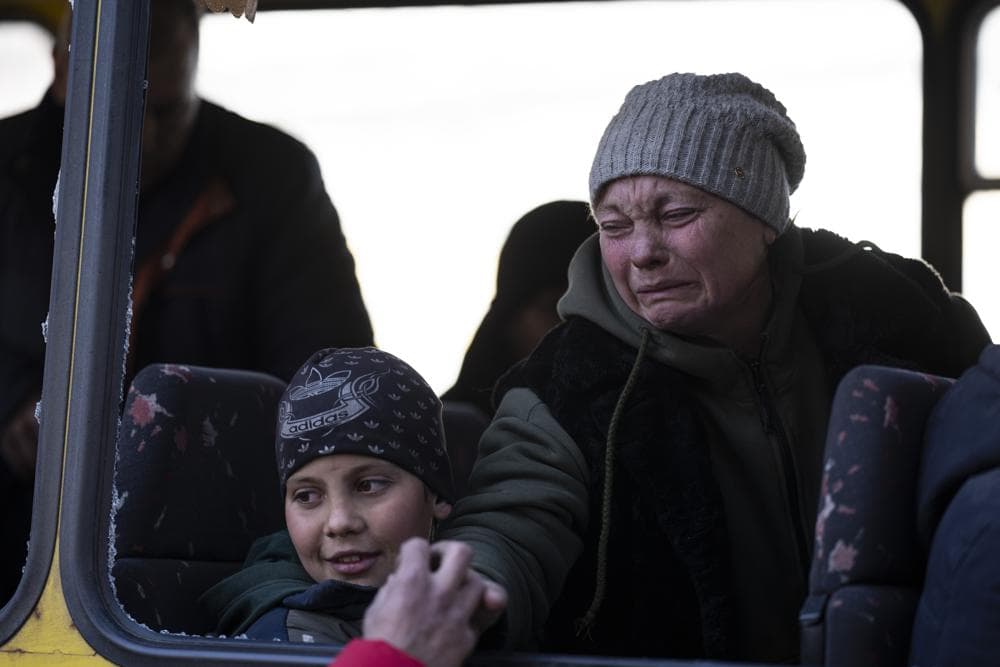LEICESTER, United Kingdom – Refugee advocacy groups are warning that the United Kingdom’s resettlement program for Ukrainian refugees is susceptible for abuse by human traffickers.
The Jesuit Refugee Service UK and Depaul UK joined 14 other organizations to warn about the possibilities of abuse in the new program in an open letter to Michael Gove, the UK Secretary of State for Levelling Up, Housing and Communities, which is in charge of overseeing the Homes for Ukraine scheme.
The British government came under criticism after the Russian invasion of Ukraine for requiring Ukrainian refugees to apply for visas before entering the country.
On March 11, the UK government announced the program that would allow individuals the opportunity to house Ukrainian refugees in their homes. The scheme requires hosts to house the refugees rent free for at least six months and allows Ukrainian refugees the right to work in the UK.
However, the immigrant advocacy groups are warning that there are not enough safeguards in place to protect refugees from human traffickers.
“Firstly, we are concerned that, at present, anyone in the UK or elsewhere can set up a matching site and be responsible for identifying hosts for refugees to pair with,” the letter states.
“We understand the Government is keen to ensure civil society play an active role in the scheme. However, by adopting a hands-off approach to matching, there is a high risk that traffickers, criminals and unscrupulous landlords set up matching sites and Facebook pages to prey upon the vulnerable,” it continues, noting the majority of those using this scheme will be women and children.
The advocacy groups pointed to reports of traffickers exploiting refugees as they cross the border into Poland and Romania and added there are concerns among the Ukrainian community that “dubious” matching sites are already being operated in the UK to “lure refugees.”
“Secondly, we believe more stringent steps should be taken to ensure pre-arrival checks are carried out. The instruction recently given to local authorities to make ‘best endeavors’ for pre-arrival checks, although a step in the right direction, does not go far enough. Our responsibility to ensure the safety of those fleeing brutal conflict is paramount,” the letter to Gove continues.
“Thirdly, we are concerned that this scheme, as currently structured, bakes in a refugee housing and support crisis for the autumn. With hosts only having a duty to accommodate refugees for six months, and no clarity about what in-placement support will be available to refugees and hosts during these placements, a heavy burden will be placed on local authorities to pick up the pieces if new housing is required,” it says.
The refugee advocacy groups said a refugee housing crisis already exists for Afghan refugees, with 11,000 of them currently stuck in hotels months after the fall of Kabul.
“Fourth, we are not aware of proactive efforts to facilitate access to this scheme for the most vulnerable. At present, the scheme relies largely on people’s ability to advertise on social media. This likely excludes groups such as the elderly, digitally excluded and those with acute medical needs,” the letter states.
“Fifth, it is important to recognize that those arriving from Ukraine will be traumatized and are likely to require counselling and other mental health support. They may also have physical injuries and be coming from areas of Ukraine with high levels of communicable diseases, such as TB. In addition to the health needs of those arriving, we are concerned over the lack of training and support currently in place to support sponsors receiving vulnerable people into their homes,” say the refugee advocates.
“Finally, we are concerned that non-Ukrainian citizens are not currently able to access this scheme, including refugees who originally sought refuge in Ukraine and are now doubly displaced. Our commitment to provide safety to those fleeing Russian bombardment should be based on the need for protection and not one’s citizenship.”
In the letter, the signatories make several policy recommendations, including: regulating the Homes for Ukraine matching services to avoid the scheme “becoming a playground for unscrupulous landlords and traffickers”; immediately passing information to the relevant local authority so that checks on the accommodation and sponsor can be carried out prior to arrival; increasing support for local authorities; ensuring sponsors receive appropriate levels of training and support; making sure refugees receive an initial health check and assistance to register with a local doctor; and expanding the scheme to include anyone displaced from Ukraine.
Sarah Teather, the director of the Jesuit Refugee Service UK, said “there is a lot more to be done” to help Ukrainian refugees.
Before taking up her role at JRS, Teather served as the UK minister for children and families and served as the chair of the All-Party Parliamentary Group on Refugees. She left parliament in 2015.
In a statement on Twitter, she said the government must ensure that sanctuary in the UK “is truly accessible.”
“This includes ensuring it can be accessed by those who arrive without visas, and by non-Ukrainian citizens who have had to flee Ukraine and are at risk of being doubly displaced,” she said.
“It also needs to make sure that vulnerable refugees are protected [and] supported [and] that refugees are not left homeless after being briefly hosted. Crucially, our government must learn the lessons of the Ukraine conflict, [and] create laws [and] policies that are welcoming to all refugees,” Teather said.
Follow Charles Collins on Twitter: @CharlesinRome












